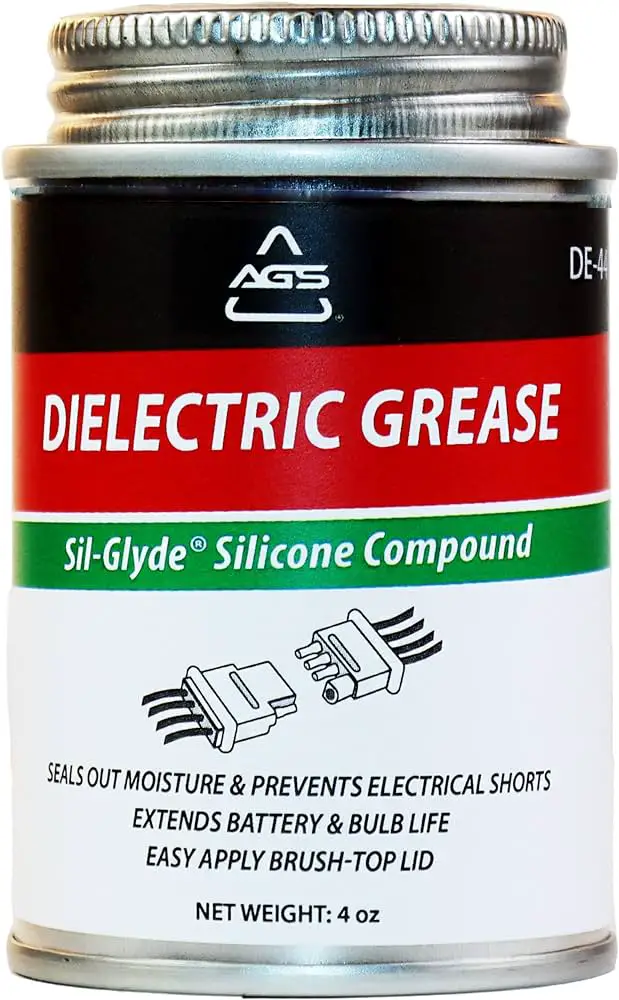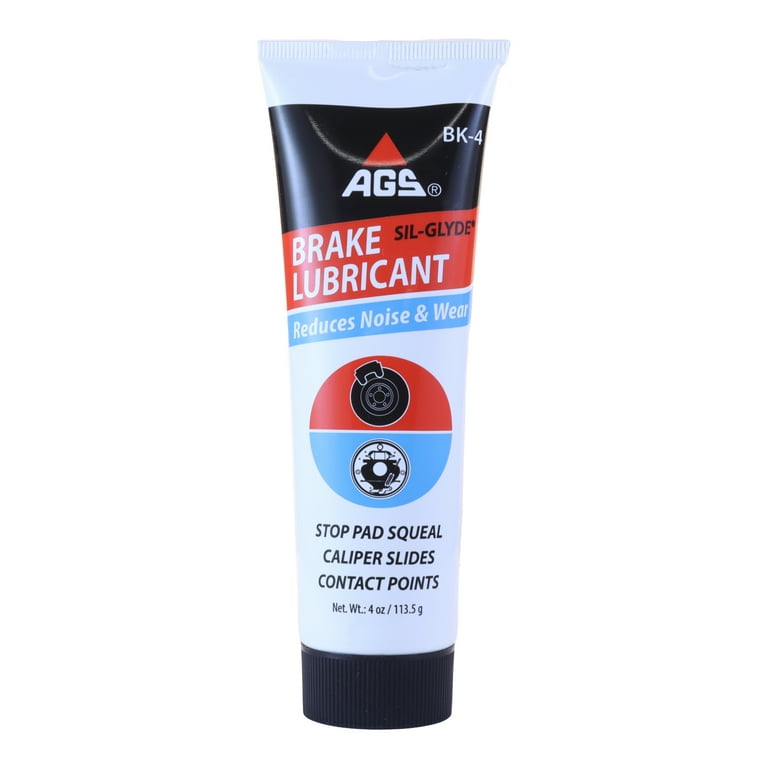Brake Caliper Lubricant: Essential for Peak Performance

As an affiliate, we may earn from qualifying purchases. We get commissions for purchases made through links on this website. You can read more on our Affiliate Disclaimer here.
Brake caliper lubricant ensures the smooth operation and longevity of brake components. It prevents sticking and corrosion of moving parts like caliper sliders and pistons.
Ensuring your vehicle’s braking system performs optimally is critical for safety and efficiency. A vital element in this system is the brake caliper lubricant—designed to protect and maintain the brake caliper’s functionality. This lubricant combats the high-heat and friction environments that brakes are exposed to, thereby aiding in the smooth and reliable movement of brake parts.
Using the correct type of lubricant can prevent unwelcome noises, such as squeaking or grinding, which often indicate that the brake components are not moving as freely as they should. Regular application during brake maintenance prevents rust and helps to extend the life of the brake system, making it a small but essential step in vehicle care. Remember to select a high-quality brake caliper lubricant that can withstand extreme temperatures and pressure variations typical in braking systems.

Credit: www.walmart.com
Introduction To Brake Caliper Lubricant
Brake calipers are crucial for safe driving. They need proper lubrication to function well. Brake caliper lubricant ensures that all parts move smoothly and your safety is not compromised. Let’s learn about brake caliper functionality and the importance of using the right lubricant.
Overview Of Brake Caliper Functionality
Brake calipers grip your car’s rotors to stop the vehicle. They are a vital part of the braking system. When you press the brake pedal, brake fluid creates pressure. This pressure moves the calipers to squeeze the brake pads against the rotors, slowing down your car. Without functional calipers, your car won’t stop effectively.
The Role Of Lubricant In Brake Performance
Lubricant is essential for peak brake performance. It reduces friction and wear between moving parts. Proper lubrication helps prevent rust and corrosion. It ensures that the calipers release fully, avoiding the brake pads from dragging. This makes for smoother driving and better brake longevity.
Types Of Brake Caliper Lubricants
Several lubricant types are available for brake calipers. The right type depends on your vehicle and the brake system’s needs. High-temperature grease is common for caliper sliding pins. Silicone or ceramic-based lubricants are also popular choices. They can withstand high temperatures without breaking down, keeping your brakes reliable.

Credit: www.ebay.com
Importance Of Proper Lubrication
Proper lubrication of brake calipers is crucial for any vehicle’s braking system. It ensures smooth operation and prevents complications. Each component within the system benefits from the right lubricant. This could make the difference between a safe stop and a potential brake system failure.
Reducing Friction And Wear
Lubrication minimizes friction between the brake caliper and the other braking components. This friction can cause severe damage over time. With the use of high-quality brake caliper lubricant, the movement of these parts becomes smoother, decreasing the chance of wear and tear significantly.
Preventing Brake Noise And Squealing
One of the most common complaints about brakes is the noise they can produce. Proper lubrication eliminates the squealing and groaning sounds that come from the brakes. This is due to the reduction of vibrations between the pads, rotors, and calipers.
Extending The Lifespan Of Brake Components
Regular application of suitable brake caliper lubricant prolongs the life of brake system components. This not only saves money on repairs but also ensures consistent brake performance. Well-lubricated parts resist rust and corrosion, keeping your brakes reliable for longer.
Choosing The Right Brake Caliper Lubricant
When it comes to maintaining your vehicle, choosing the right brake caliper lubricant ensures safety and prolongs the life of your brake system. It keeps the parts moving smoothly and prevents corrosion. Let’s delve into factors that influence your choice, compare different products, and share application tips for best results.
Factors To Consider When Selecting A Lubricant
Selecting the perfect lubricant for your caliper is crucial. Consider the following:
- Temperature Range: It must withstand extreme temperatures.
- Compatibility: The lubricant should not degrade rubber or plastic brake parts.
- Water Resistance: It must repel water to avoid washing away.
- Longevity: Select a product that offers lasting protection.
Comparison Of Greases And Lubricants For Calipers
Different types of greases suit different brake systems.
| Type | Properties | Best For |
|---|---|---|
| Silicone Grease | Non-reactive, stable at high temperatures | Most brake systems |
| Mineral Grease | Good for older vehicles | Classic cars |
| Synthetic Grease | Superior performance, long-lasting | Heavy-duty applications |
Application Tips: How To Apply Brake Caliper Lubricant
Applying lubricant properly is as important as choosing the right one. Follow these steps for an effective application:
- Clean: Remove any old lubricant and debris.
- Apply Sparingly: Use just enough lubricant to cover the area without overdoing it.
- Distribute Evenly: Ensure a thin layer covers all moving parts.
- Avoid Rotor and Pads: Keep lubricant off brake rotors and pads.
Maintenance And Safety Considerations
Car brakes need love too. To stay safe on the road, keep brake calipers working right with a good lube. This means less squeaks and more smooth stops. Let’s dive into keeping those brakes in tip-top shape.
Regular Maintenance Schedule For Brake Lubrication
Brakes are key for a safe drive. Stick to a regular lube timetable to avoid any brake hiccups. Use these simple steps:
- Check lube during every oil change.
- Yearly inspections are a must.
- Replace brake fluid every 2 years.
Handling And Safety Tips For Diy Enthusiasts
Ready to DIY? Great! Safety first, though. Wear gloves and eye protection when dealing with brakes. Only use lubes made for brake parts. And never ignore the manual’s advice.
Signs Of Improper Lubrication And Troubleshooting
Keep ears and eyes open for these trouble signs:
| Symptom | Troubleshooting Tip |
|---|---|
| Squeaky brakes | Time to re-lube, maybe check for wear. |
| Sticky brake pedal | Lube might be wrong, or used up. |
| Car pulls to one side | Lube could be uneven, do a quick check. |
Innovations And Future Directions In Lubrication Technology
Vehicle maintenance now sails on the cutting edge of technology.
Brake systems, critical for safety, demand the best in lubrication.
Understanding recent innovations guides us towards future possibilities.
Recent Advances In Lubricant Formulations
Lubricant scientists are pushing boundaries.
- Improved high-temperature stability ensures persistent performance.
- Advanced additives extend caliper life and reduce wear.
- Formulations today focus on anti-corrosion properties.
Environmental Considerations And Green Alternatives
The shift is clear.
Eco-friendly options take center stage.
Brake caliper lubricants now feature:
| Feature | Benefit |
|---|---|
| Biodegradable base oils | Minimize environmental impact |
| Non-toxic additives | Ensure user safety |
Green innovation is paramount.
Trends In Brake Caliper Lubricant Market
Demand surges for specialized lubricants.
Market trends show:
- High-performance lubricants lead sales.
- Consumers prefer long-lasting products.
- Synthetic options gain traction.
Expect smarter, greener solutions going forward.

Credit: www.amazon.com
Frequently Asked Questions Of Brake Caliper Lubricant
What Do You Use To Lubricate Brake Calipers?
Use high-temperature automotive grease or specially formulated brake caliper lubricant to ensure optimal performance and prevent seizing.
Do Brake Calipers Need To Be Oiled?
Brake calipers do not require oiling. Lubricating them with oil can attract dirt and cause malfunctions. Instead, use high-temperature automotive grease for moving parts during brake maintenance.
What Should A Brake Caliper Piston Seal Be Lubricated With?
A brake caliper piston seal should be lubricated with high-temperature brake grease or silicone-based lubricant. Only use products designed for brake system components.
What Type Of Lubricant Is Used On The Brake Caliper Slide Pins?
High-temperature silicone or synthetic grease designed for brake systems is recommended for lubricating brake caliper slide pins. Use products specifically formulated for brake parts to ensure proper function and safety.
Conclusion
Selecting the right brake caliper lubricant is crucial for vehicle maintenance. Ensure consistent performance by choosing a high-quality product that matches your car’s requirements. Regular application can prevent costly repairs and extend the life of your braking system. Drive with confidence, knowing your brakes are in top condition.

Steven is a professional cyclist and his passion is cycling. He has been cycling for the last 6 years and he loves using bikes while outing as well. Based on his experiences with the different types of bikes; he is sharing his opinions about various bikes so that a beginner can start right away. Find him on Twitter @thecyclistguy Happy Biking.




